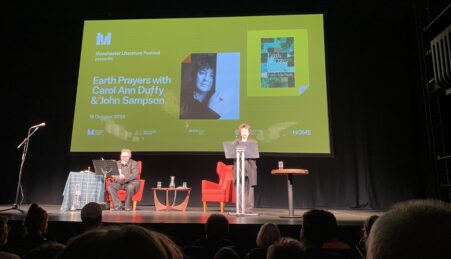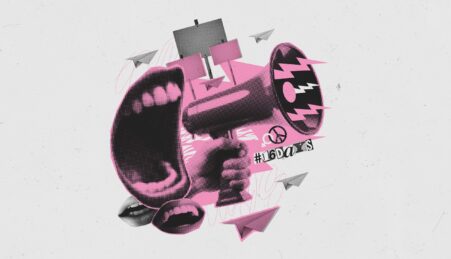So surprise surprise, an author has expressed regret at a certain plot point in their novel. This would normally slip beneath society’s radar. After all, we are all human – who hasn’t looked back at something and wished they could have chosen a different path? However, in this case, it wasn’t just your everyday wish that you had, say, remembered to pick up your bus pass this morning. It was J.K. Rowling regretting the biggest pairing to have emerged from the Harry Potter franchise. I’m sure this has happened/will happen to other authors (I’m looking at you George R. R. Martin), but the mere fact that it is Harry Potter has caused a shockwave through fans and the media alike.
Of course, this isn’t the first time Rowling has caused controversy in regards to the series. Her revelation of Dumbledore’s sexual orientation as gay in 2007 sparked similar media controversy. The introduction of sites such as Pottermore, have offered ways to shed light on aspects of the novels that she was unable to explore fully, and flesh out characters, places and events. This latest admission of regret, therefore, can be understood in two ways. First, that Rowling genuinely regrets her decision, and wishes she had followed a more conventional narrative; or second, that as an author of one of the most popular series of all time, she is having some trouble letting go.

After seeing the offending article, in which Rowling admits that the relationship of Ron and Hermione was more ‘wish-fulfillment’ than anything else, Potter fans swept into an online fury; some rejecting Rowling’s change of heart, others embracing it fully. As a beloved pairing in the books, and one that seemed obvious (at least in the films), Ron and Hermione brought a new dimension to the franchise, toeing that will-they-won’t-they line for over ten years. Rowling’s rejection of the compatibility of the couple has led to widespread speculation on which pairing she wishes she had chosen instead.
While Rowling has admitted previously that originally she had planned for Hermione to choose another Weasley, the media has focused on the idea of a Harry/Hermione romance. While this would explain some of the films’ added scenes (Deathly Hallows Pt. 1 awkward dance, anyone?), Rowling has never actually stated in the press that Harry would have been the better choice. The author’s sudden apparent condemnation of their relationship has therefore left many fans disillusioned and angry with their favourite series – after all, if Ron and Hermione are not as perfect for each other as one may think, what other characters or relationships aren’t to be trusted? Should Harry be with Luna? Should Ginny have run away with McGonagall?
The topic has been causing war among fans, but through the Tumblr bloodshed and the clashing of Facebook posts, I can’t help but wonder if perhaps we are arguing for all of the wrong reasons. Whether Harry or Ron is ‘better’ for Hermione appears irrelevant, because in either case, Hermione is the prize. The concern of some fans, for example, is that if Hermione had chosen Harry, Ron would remain the eternal sidekick, and never be rewarded for his role in the trio’s adventures. This seems problematic – we are reducing a character who is (arguably) one of the strongest female characters in a major franchise, into nothing more than a pretty girl. She becomes the traditional love interest that serves to act as a reward for great bravery and is used to elevate her love interest to hero status, rather than sidekick.

Shocking? No. The media loves to do this to our strong characters. Katniss Everdeen, a character written as the face of a revolution, is supposedly trapped in a love triangle in the marketing of another popular franchise, The Hunger Games. Why is it that, as female characters, Hermione and Katniss are valued more for their choice of boyfriends than their ability to brew dangerous potions at the age of 12, or shoot arrows with deadly accuracy?
Prominent female characters in past non-romance genres have been few and far between, but this appears to be changing. For films such as The Hunger Games, the upcoming Divergent film, and others, presentation of these films by the media has skewed the public lens towards the romantic aspects of the plot, rather than the emotional depth or subtle allusions to the state of society.
This latest war of where Hermione’s best interests lie robs her of her agency, reduces her to little more than a prize, and disregards her stance as a developed female character. Too often our literary heroines are presented in the light of a romantic conflict, overshadowing their other attributes. Whether it’s Hermione Granger effortlessly flinging curses, Katniss Everdeen defending the people she loves, or yes, even Bella Swan punching a werewolf in the face, we need to consider why female characters are so often represented in terms of their men.
When will our literary heroines be elevated above ‘love interest’?
When will we get our franchises without an embarrassingly clichéd love triangle?
When will we stop thinking of our female characters as prizes, and start thinking of them as heroes?
Alex is an English student at MMU. She is passionate about good coffee, boring films and ridiculously long books. She would like her writing to be seen and hopefully one day published. You can read Alex’s blog and follow her on Twitter @aalexjm








Leave a reply